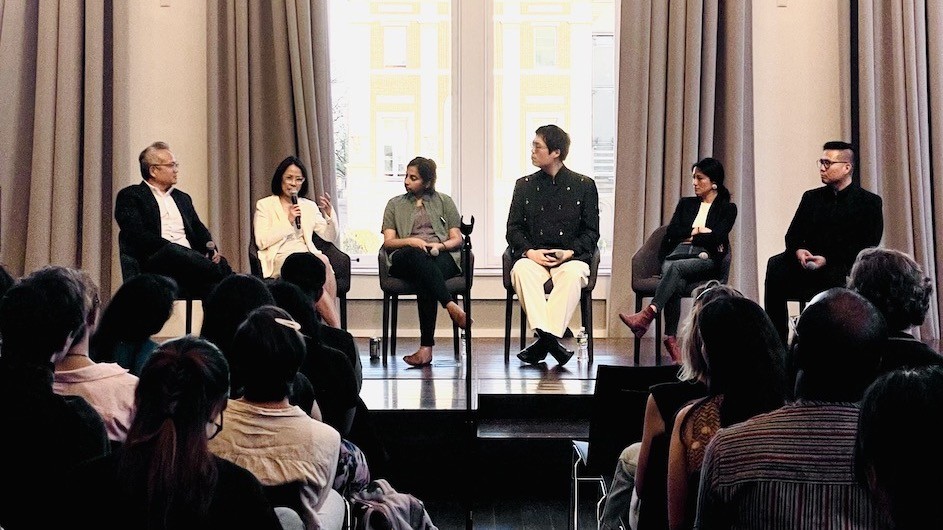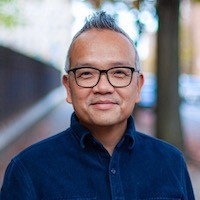Why Diverse Representation in Newsrooms Is Vital
Columbia Journalism School recently hosted an event to discuss the importance of Asian perspectives in news reporting.

How do journalists present Asian viewpoints in their reporting today? Last month, Duy Linh Tu (JRN'99), professor at Columbia Journalism School, brought together Academy Award-nominated filmmaker Poh Si Teng, Pulitzer Prize-winning photojournalist Marcus Yam, multimedia reporter Karen Yi, award-winning journalist Kavitha Chekuru, and digital journalist Xavier Wang to examine this question at an event, “Asian Perspectives in Journalism.”
Columbia News caught up with Professor Tu to find out why he organized the event, how we can ensure that reporting comes from different vantage points, and why diverse representation is necessary in newsrooms.
Why did you organize the "Asian Perspectives in Journalism" event at Columbia Journalism School?
It’s an important discussion to have. Journalists come from all sorts of backgrounds and identities, and this informs how we view the world and report on it. Also, our identities are always a factor when it comes to opportunities in newsrooms. So, having this event gave Asian journalists and students a way to connect and speak about those ideas.
What topics did you cover in the event? And why?
We talked a lot about representation—both in terms of jobs in the newsroom and how Asians are represented in news stories. Asians are often represented as a monolith, which is simply wrong. Vietnamese immigrants are different than Chinese immigrants. And even within any subgroup, there are differences when it comes to political ideology, for example.

I don’t have the numbers in terms of how many Asians work in newsrooms, but there’s still an obviously deficit. And you see it playing out in awkward or uneven coverage of stories such as the rise in hate crimes against Asians. Fixing the problem of diversity in newsrooms is actually really simple: hire diverse candidates. There’s not much beyond that.
I believe that most journalists and newsrooms are well-meaning, but without constant reflection, we’ll continue to make the same mistakes over and over.
What do you hope the audience learned from the event?
I’m not sure what they learned from the event. But, I just hope that Asian journalists came away knowing that there is a big community and sources of support for them. And this is especially important to know if you are a student just starting out in the field.
Historically, do you think biases in reporting have impacted how Asian communities are viewed in the United States? If so, how?
Absolutely. As I said, I think most journalists are well-meaning. They want to represent facts, people, communities accurately and fairly. But, we all come from different backgrounds and perspectives, so it’s inevitable that biases arise in how we staff our newsrooms and how we tell stories about different communities.
Why is it important to discuss Asian perspectives in journalism?
Journalism, and specifically our current industry, makes mistakes. We make assumptions about whole groups of people based on race. I see this all the time in political stories. You’ll see headlines like “Asians likely to vote this way.” That would be like saying “All white people vote this way.” It’s completely crazy.
We can always do better. We need to hire more diverse reporters and journalists—not to tick some weird DEI box and feel good about ourselves. But reporters bring with them their lived experiences and the more diverse a newsroom you have, the more viewpoints each story can be viewed from. And doing better requires self-reflection and understanding that our fair and equitable representation of Asian perspectives in the newsroom is vital for our industry to succeed.